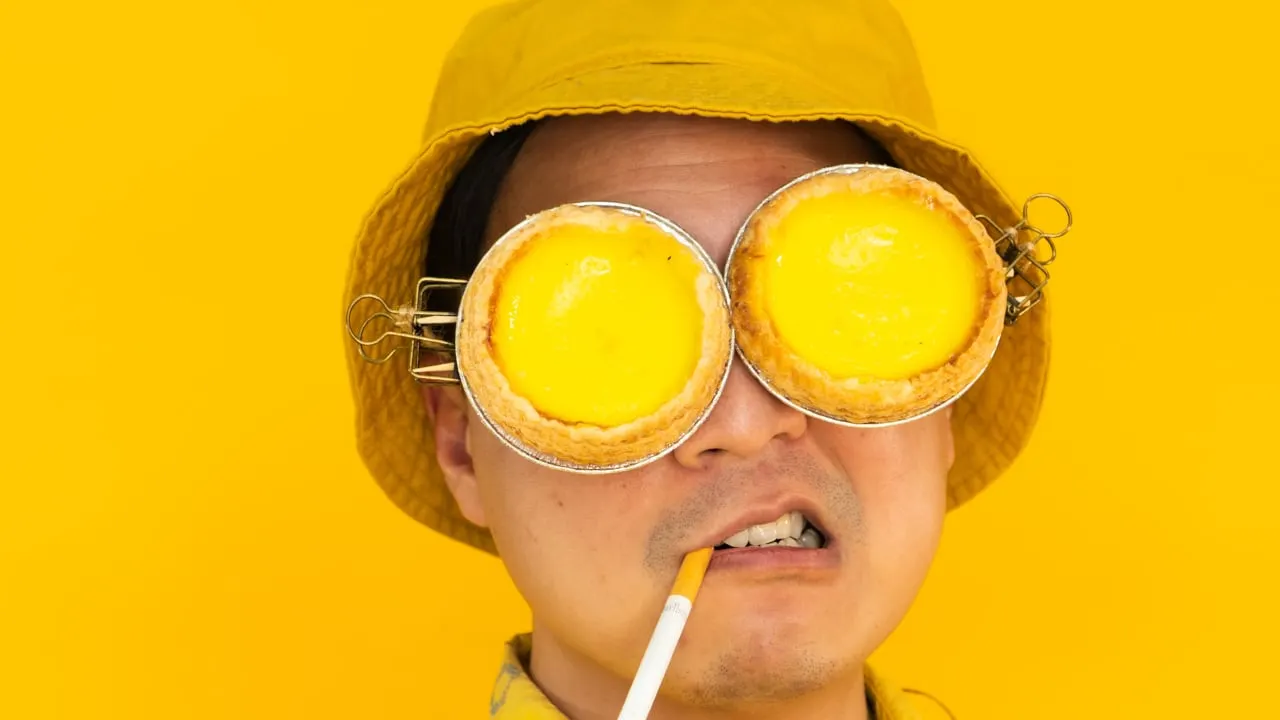Some detractors of NFTs fixate on their ethereal, intangible nature. How can they be art, critics cry, if they're only digital, virtual, disconnected from reality?
It would be difficult to levy those claims against the works of Foodmasku.
That’s the moniker of Antonius Wiriadjaja, the multimedia performance artist who—for three years now—has created NFTs depicting himself wearing masks made entirely of food, and then eating the masks. The ultimate consumption of the work is a rule, a key component.
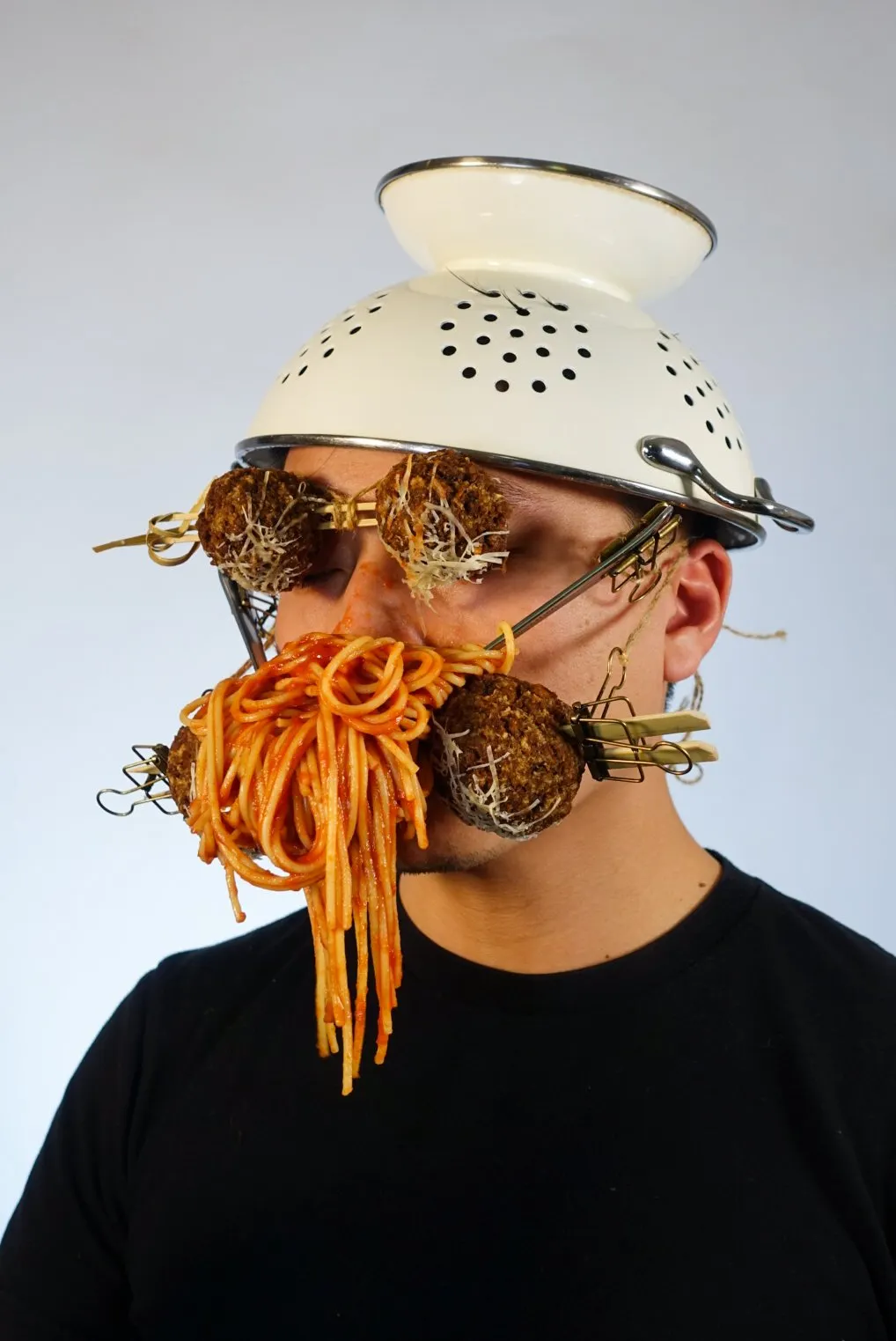
The association between masks and food—and between food masks and the blockchain for that matter—is not necessarily intuitive. That may be because, for Wiriadjaja, those connections were the product of organic necessity.
In the earliest months of the pandemic, the artist recalls, he and a group of remote colleagues were navigating the still-bizarre realm of Zoom encounters. One fateful day, one of his friends became inadvertently trapped in a video filter that apparently turned their face into a pickle. The caller was embarrassed. Wiriadjaja’s first impulse was to make them feel better.
“So I took [a part of] my dinner, which was a piece of kale, put it on my face and said 'Hey, I have a filter on as well,’” Wiriadjaja told Decrypt at NFC Lisbon earlier this week.
The pickled participant was delighted, their shame washed away, and they asked Wiriadjaja what he was going to wear tomorrow. Foodmasku was born.
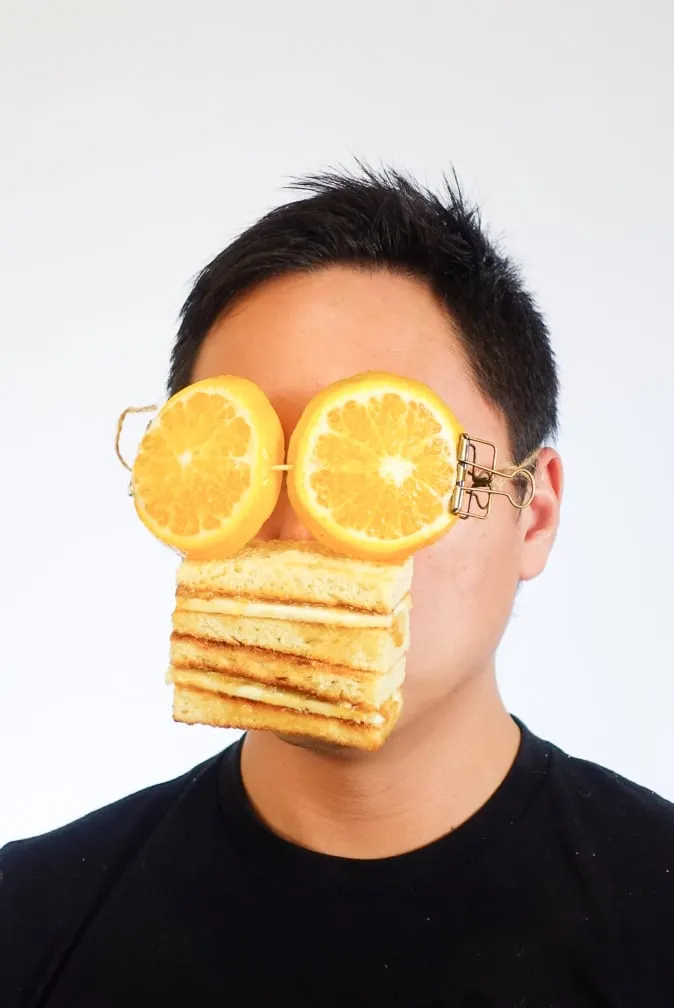
In the following weeks and months, Wiriadjaja dedicated himself to the mission of creating, documenting, and eating food masks. Banana eyes, broccoli nostrils, noodle noses, shrimp eyebrows... every day, a new sumptuous self-portrait.
The project steadily gained steam, but that success was a double-edged sword: people were so enamored with Wiriadjaja’s food masks that phony Foodmasku accounts began popping up across numerous social media platforms.
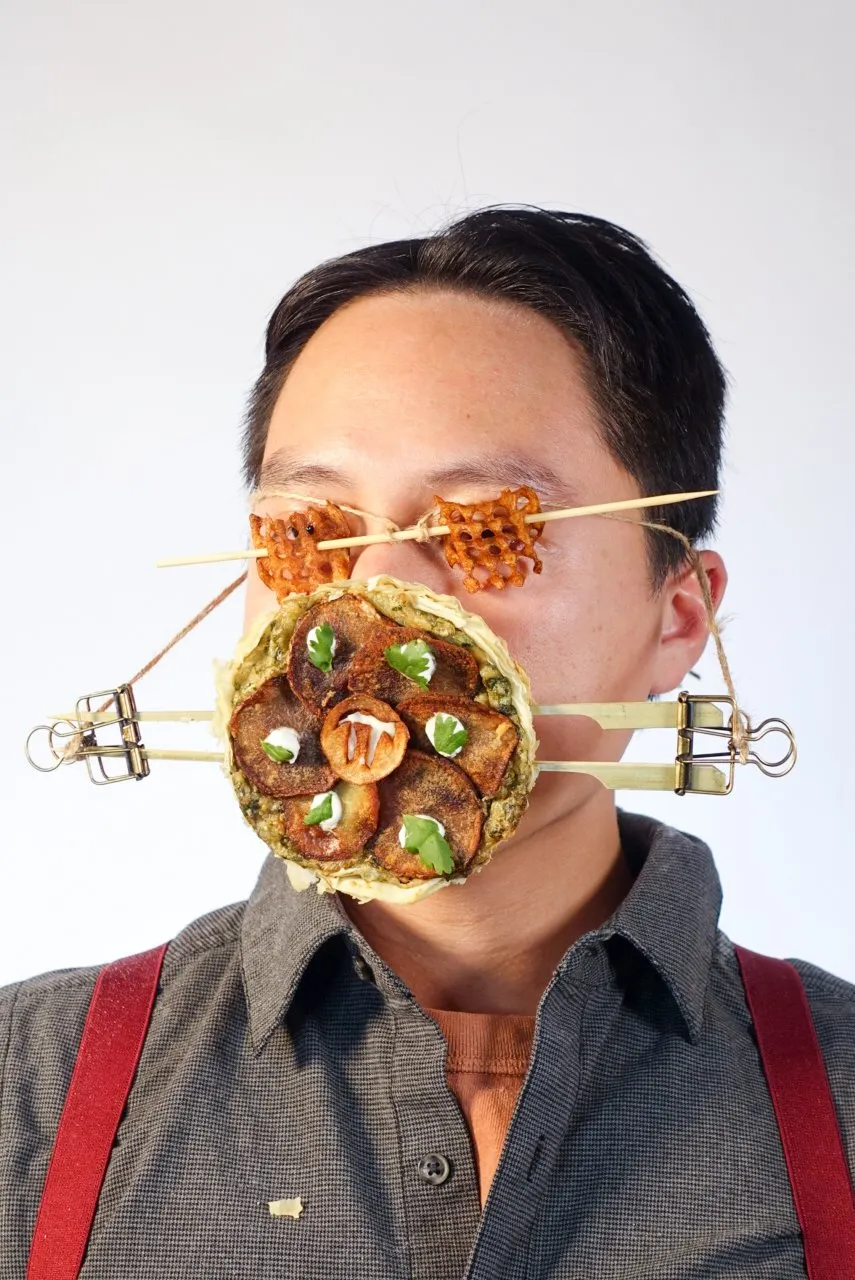
This was March 2021, and Wiriadjaja was frustrated. There had to be a way to own digital files, to protect his edible oeuvre. He did some searching online and came across NFTs. The artist Beeple had just sold an NFT artwork for $69 million, catapulting the emerging technology into the mainstream.
So Foodmasku became a Web3 artist. Not out of an ideological or artistic commitment to the ethos of decentralization, but instead—as with the inciting kale flap—because it just made sense.
To date, Wiriadjaja has created almost 2,000 Foodmasku NFTs, generating about 50 ETH, or $92,000, in sales.
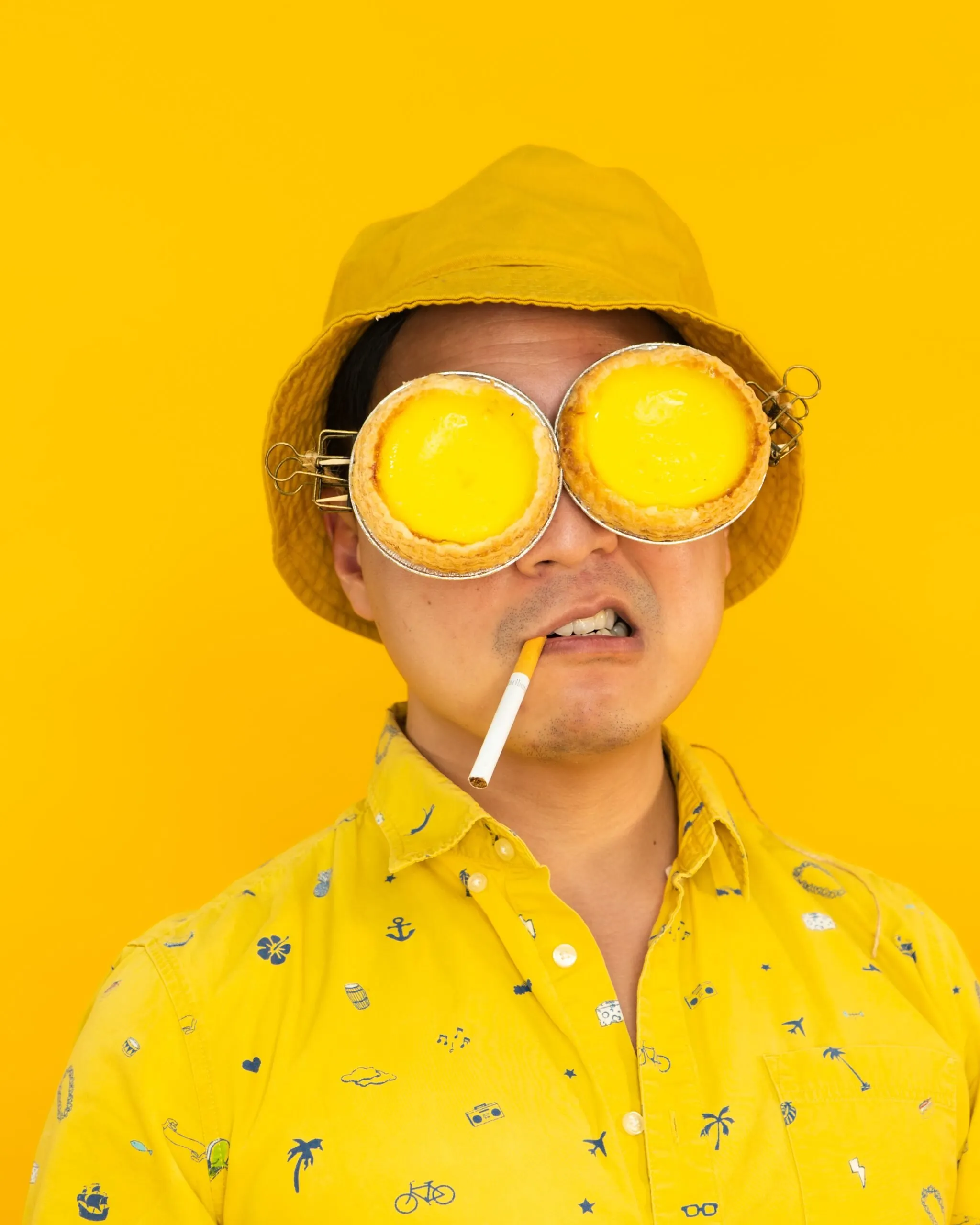
The artist, who was born in Indonesia and raised in Boston, has faced different reactions to his works across various cultures and contexts. A through-line, he’s found, is that people across the world tend to be afraid of technology.
“Technology is scary to everyone, everywhere,” he said. “Indonesians are worried that technology’s going to kill off their traditional arts, Americans are worried technology’s going to take all of their jobs. But one thing everybody relates to is food.”
If foods and masks and emergent digital technologies can be brought together to give Wiriadjaja’s colorfully inventive and optimistic portraits a cohesive thesis, it might be that any medium possesses the capacity to tap into the universal vibrancy of humanity.
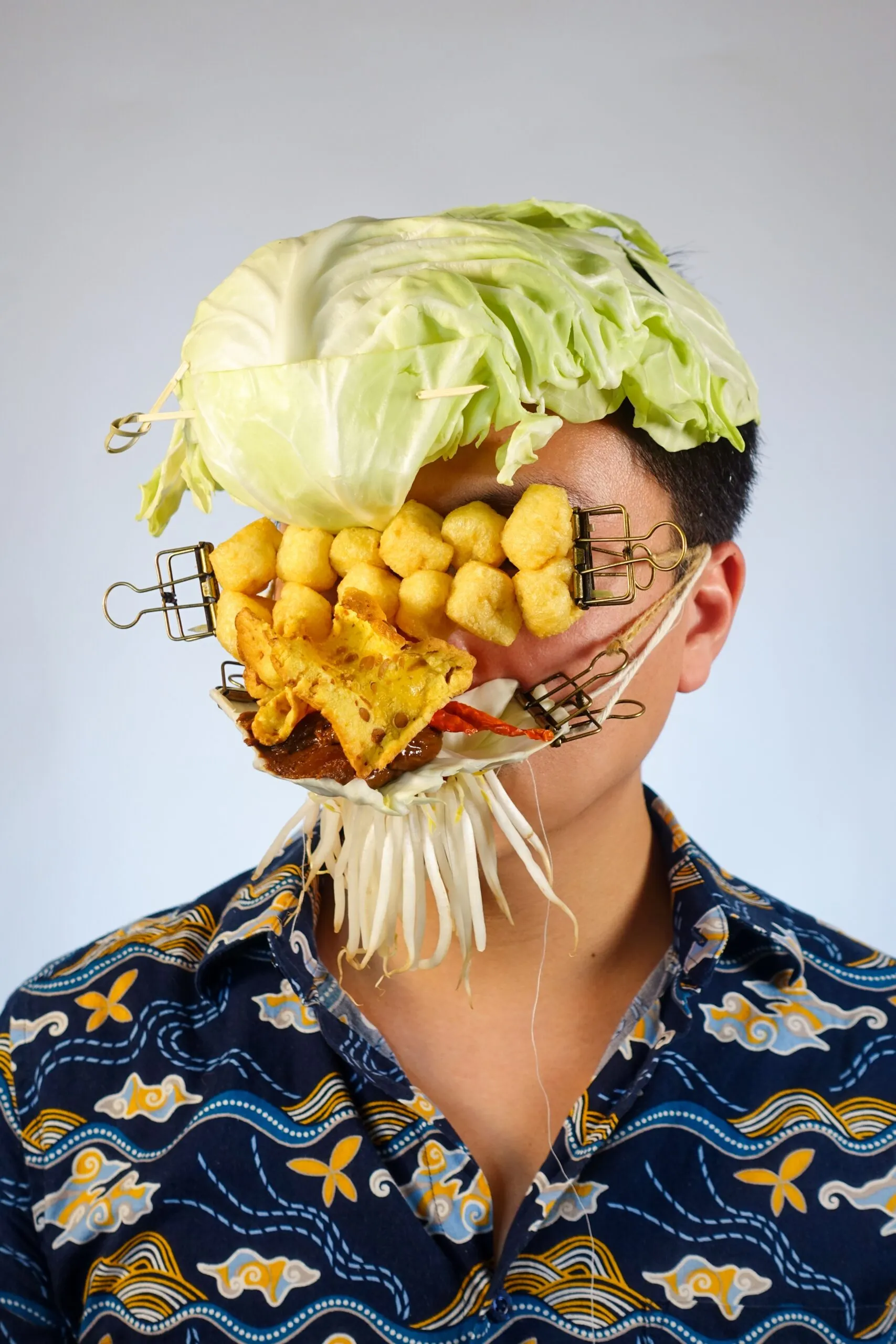
In that vein, Wiriadjaja has recently become fascinated with artificial intelligence. He’s developing a project called “Proof of Eat,” which is intended to clear the air on the increasing disquiet prompted by blurring of the line between humans and machines.
“One big test of whether a creator is human or not, is if they can eat food,” he said.

